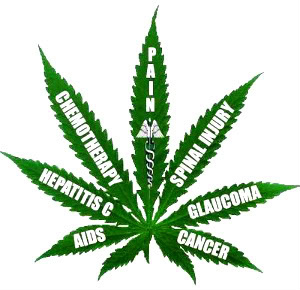1. UQ News: Is there need to reform international drug treaties?

Professor Hall calls for “rigorous evaluation”
The future of international drug control treaties is in question because of recent treaty-violating decisions to legalise non-medical cannabis use in Canada, the United States and Uruguay.
Professor Wayne Hall from The University of Queensland Centre for Youth Substance Abuse is urging caution on the matter.
In 2014 Professor Hall wrote a 20-year review of cannabis research which attracted worldwide headlines.
“If decriminalisation is the way of the future, a cautious approach to policy reform needs to be considered, involving trialling and evaluating the effects of incrementally more liberal drug policies,” Professor Hall said.
“We do not want to replicate with cannabis the adverse public health effects of allowing the free promotion and widespread use of alcohol and tobacco.
“There is strong public support for medical cannabis use in Australian surveys, often in ignorance of the very modest evidence on the effectiveness and safety of medical use.
“The policy challenge for governments is to find ways of making cannabis products available for medical use without replicating experience in California where ‘medical use’ very broadly defined, was used to create a de facto legal market for non-medical cannabis use.
“It is important that policies minimise adverse effects of regular cannabis use such as dependence and the much poorer life outcomes of users who initiate cannabis use in their mid-teens and use daily during their early 20s.”
The international drug control treaties endorsed by most member states of the United Nations (UN) prohibit non-medical use of amphetamines, cannabis, cocaine and heroin.
The aim of the treaties is to reduce the harmful use of prohibited drugs and facilitate access to these drugs for medical and scientific purposes.
Critics claim that the treaties have failed to tackle non-medical use of prohibited drugs and have justified policies that conflict with UN human rights treaties by incarcerating large numbers of drug users.
Professor Hall made several suggestions in a study published this month by the scientific journal Addiction.
The paper outlines types of policies that nations could adopt to address the different types of harm that different illicit drugs cause to users and others.
Cannabis policy changes require treaty change, while others could be accomplished by more ‘flexible interpretations’ of treaty provisions by member states and UN agencies.
“Cannabis is the strongest candidate for national policy experiments on different ways of regulating its sale and use, as is happening in the USA, Uruguay and Canada,” Professor Hall said.
“Rigorous evaluations of these experiments will be useful for other countries considering legalising cannabis for adult recreational use.”
2. CannabisCheri: This Is Your Brain On Marijuana: An RN’s Perspective
by Lanny Swerdlow, RN, LNC
Your brain thrives on cannabis. Far from being destructive and harmful to our brain, cannabis improves brain function, encourages regeneration of brain cells, protects healthy brain cells from death, and stimulates creative and insightful cognition.
The adult human brain contains between 100–500 trillion synapses with every cubic millimeter of the cerebral cortex containing roughly a billion of them. It is at these synapses that neurotransmission occurs and cannabinoids are essential to their normal functioning.
Crucial to the biological functions responsible for perception and thought, the chemical synapses are specialized junctions that enable neurons to form circuits and signal to each other. Due to the unusual property of retrograde transmission, cannabinoids play a critical role in neurotransmission. Without the feedback mechanism from this diffusion backwards across the neural cleft, the synapses would be vulnerable to excessive activity which could result in nerve cell death.
Your Brain on Marijuana: Why Cannabis is So Safe
The largest neurotransmission system in our bodies is the endocannabinoid system which is activated by cannabinoid receptors found throughout the body. In the brain, cannabinoid receptors abound abundantly in the basal ganglia, hippocampus, and cerebellum, but not in the lower brainstem.
The lower brainstem controls respiratory and cardiovascular functions. It is the absence of cannabinoid receptors in the brain stem that is responsible for the unparalleled safety of cannabis. This the reason why there has never been a fatal overdose as there is no risk of respiratory or cardiovascular failure.
The cannabinoid system not only prevents cell death, it is also responsible for neurogenesis – the creation of new brain cells. The system facilitates the process of neurogenesis throughout the entire human life span, from embryonic development to late adulthood. In the brain, neurogenesis takes place primarily in the hippocampus which is responsible for memory, learning and spatial orientation.
It should be no surprise then that this process of forming new neurons in the hippocampus improves learning and memory. What is amazing is that cannabinoids also promote neurogenesis even after brain cells are damaged as well as delay the decline in neurogenesis.
Your Brain on Marijuana: The Fountain of Youth?
Although neurogenesis is a process that continues throughout life, neurogenesis does declines with aging. Canadian researcher Dr. Xia Zhang found that synthetic THC could not only promote neurogenesis in laboratory animals, but also seemed to reduce symptoms of anxiety and depression. How perfect for the elderly.
Research conducted in Israel and Spain has shown that it is the unique ability of the cannabinoids found in cannabis to protect nerve cells from dying, to reduce inflammation and prevent mental decline that underlies its proven ability to delay the onset of Alzheimer’s disease.
Your Brain on Marijuana: The Key to Creativity?
Along with its anti-inflammatory properties, the capacity of cannabinoids to control fundamental neurological activities can help people recover from the neurological damage that occurs with stroke or injury.
The high densities of cannabinoid receptors found in the forebrain and cerebellum also explain why cannabinoids are essential for cognition and movement. It is this increase in cannabinoid activity in the evolutionary advanced areas of the brain that promotes higher levels of consciousness and hence creativity.
Due to the numerous roadblocks enacted by government to thwart cannabis studies, there is paucity of research connecting the use of cannabis to creativity. There is an abundance of anecdotal evidence. Charles Baudelaire, George Carlin, Shakespeare, Carl Sagan, Louis Armstrong, Paul McCartney, Norman Mailer and Jack Nicholson are just a few of our most revered minds that have ascribed to cannabis a positive association between its use and their creative thoughts.
Perhaps this ability to induce higher levels of consciousness explains a 2010/2011 study in Ireland that found cannabis use more common among those with higher educational achievements. The study found that cannabis use rates were highest among people who were still in education over the age of 20 and lowest among those who left education before the age of 15.
Far from the fear mongering of mercenary drug warriors that marijuana damages our brains and inhibits our thought processes, the use of the cannabinoid supplements found in cannabis can protect our brains, ensure the proper functioning of neural transmission systems, delay the onset of Alzheimer’s and stimulate new and innovative thoughts of the highest order.

Lanny Swerdlow, RN, LNC
Lanny Swerdlow, RN, LNC is host of the Internet radio show Marijuana Compassion & Common Sense and founder of the Marijuana Anti Prohibition Project and the Brownie Mary Democratic Club.
3. Cannatech News: Using THC To Treat Symptoms Of Crohn’s Disease
While there are medications available for those who suffer from Crohn’s, more often than not, these medications don’t work and patients are forced to find alternative solutions. One of the best and safest options available is medicinal cannabis.
What is Crohn’s Disease?
Crohn’s is a mysterious disease that results in irritable bowels and inflammation of the GI tract and includes the stomach, esophagus, small intestine, and colon. However, the area that is most commonly affected is the ileum, which the very last part of the small intestine, and the first portion of the colon.
It was always theorized that Crohn’s Disease relates to genetic irregularities in the immune system. However, recent studies show that an imbalance of bacteria in the gut can trigger the disease as well. The symptoms of Crohn’s vary depending on what region of the body is affected, but some of the most common symptoms are as follows:
- Severe abdominal pain
- Severe diarrhea
- Bloody stool
- Fever
- Fatigue
- Wasting (difficulty keeping on weight due to lack of nutrient absorption)
How Does Cannabis Help?
It’s believed that cannabis can help provide comfort to patients who haven’t found success with conventional treatments. Cannabinoids found in the plant have immunomodulatory effects, meaning they prevent the immune system from releasing inflammatory proteins and instead they trigger anti-inflammatory compounds.
In 2013, Israeli researchers completed a study confirming this theory. The patients chosen had severe symptoms that did not respond to standard Crohn’s treatments. The patients where divided into two groups, a control group and cannabis group, and studied for a total of 10 weeks. The cannabis group received 115mg of THC twice daily via smoking and the control group was treated with extracted THC.
“5 of the 11 subjects in the cannabis group achieved complete remission of Crohn’s disease. 10 out of 11 patients had a clinical response that included improved symptoms,” the study concluded. “The cannabis patients also reported no negative side effects and had improved appetite and sleep.”
The Top 5 Strains for Battling Crohn’s
If you’re interested in treating Crohn’s symptoms with cannabis, these five sativa-dominant strains are some patient favorites.
